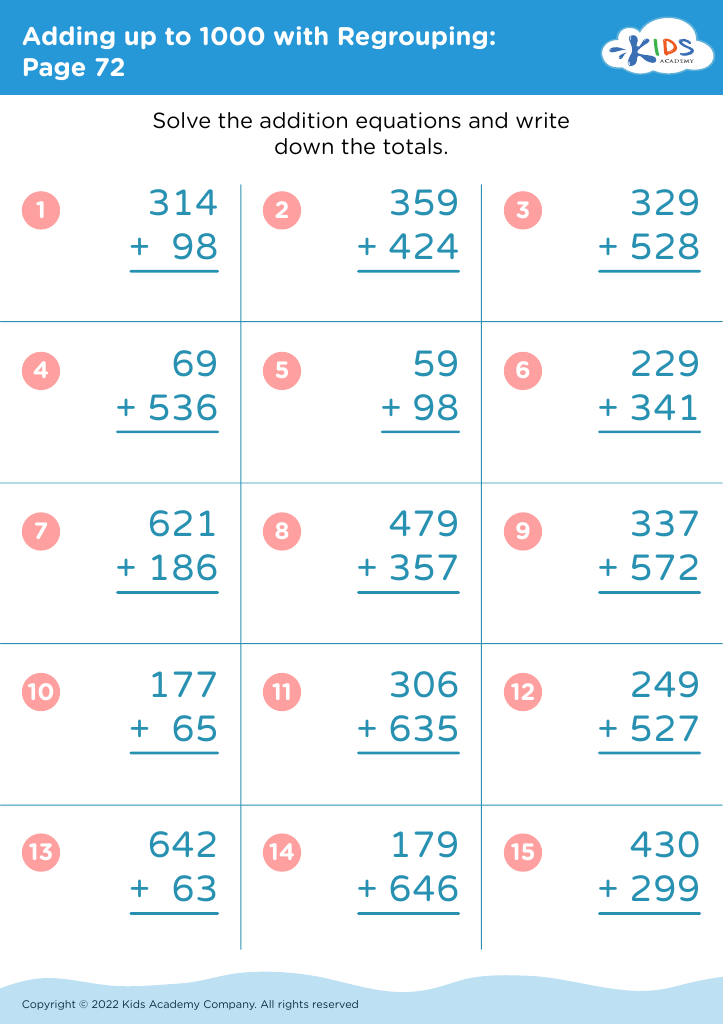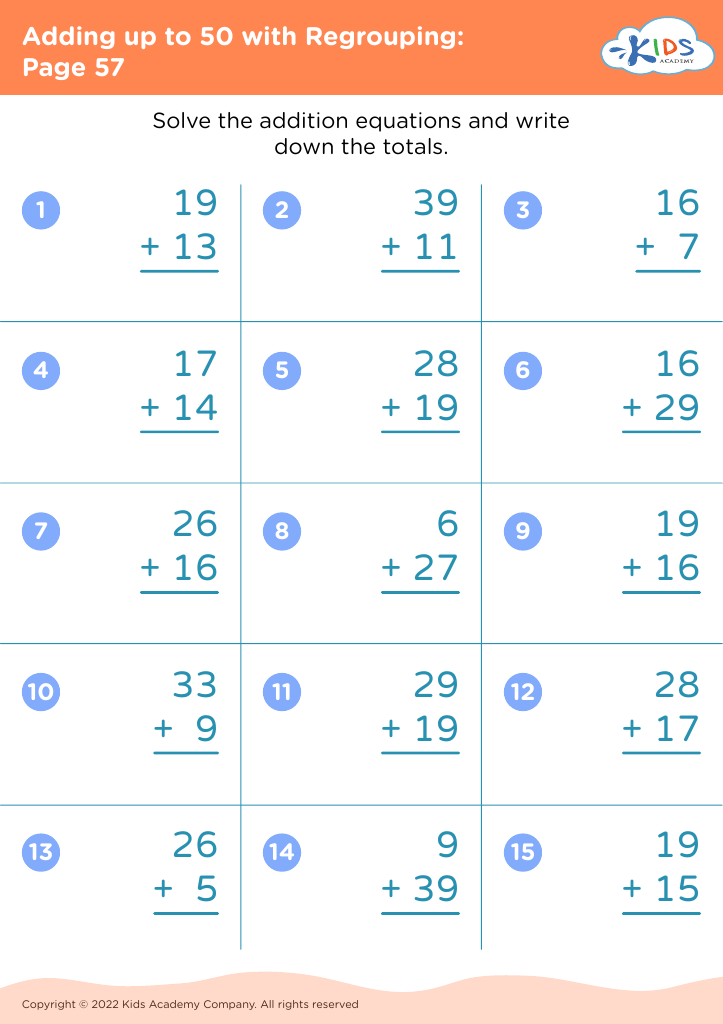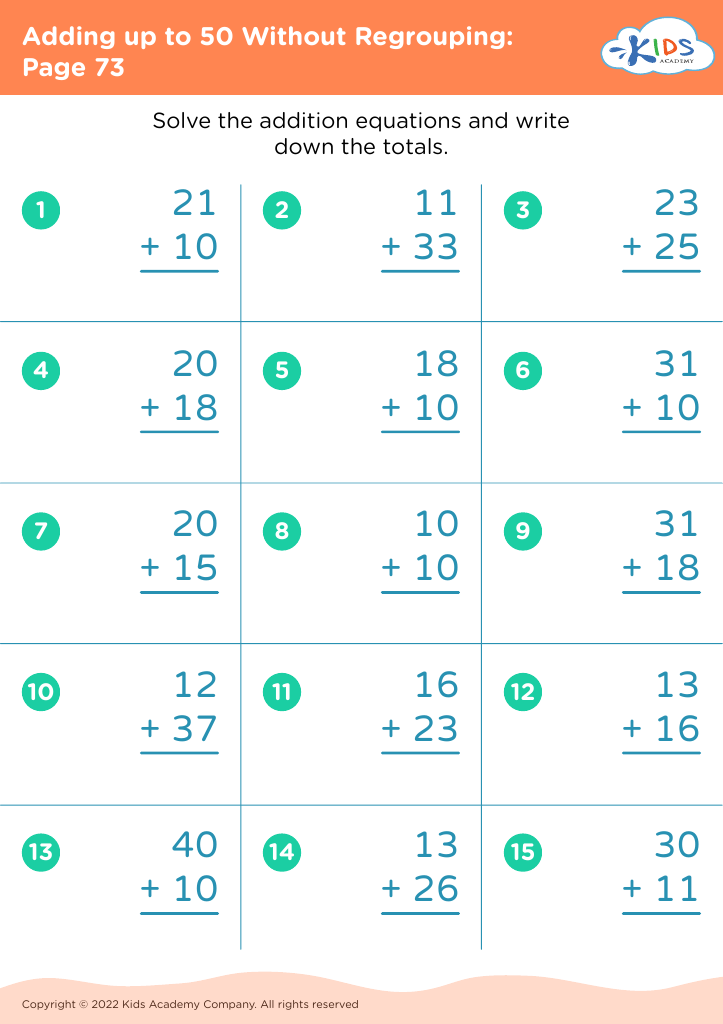Logical thinking Addition Worksheets for Ages 5-9
9 filtered results
-
From - To
Discover our engaging Logical Thinking Addition Worksheets for ages 5-9, designed to enhance young learners' math skills through fun and interactive exercises. These thoughtfully crafted worksheets encourage children to apply logical reasoning while mastering addition concepts. Perfect for home or classroom use, our worksheets link math with real-world problems, boosting critical thinking and problem-solving abilities. Intuitive for kids and useful for educators, they support consistent practice with a variety of stimulating activities. Help your child build a strong mathematical foundation with our free printable resources and watch their confidence soar! Visit Kids Academy to start your math adventure today.
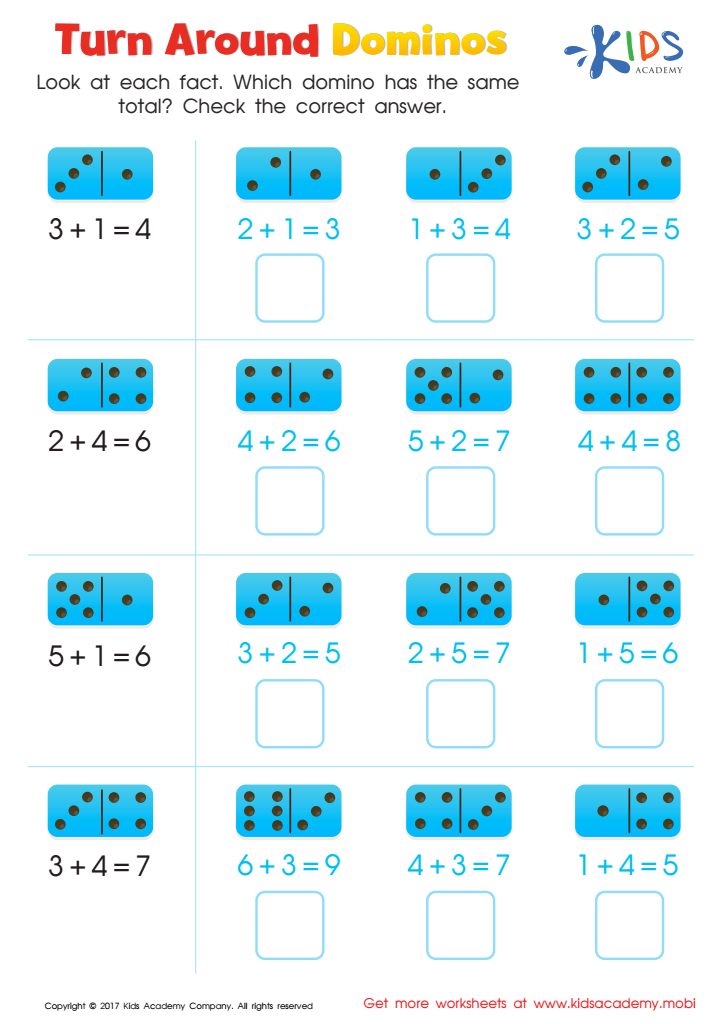

Turn Around Dominos Worksheet
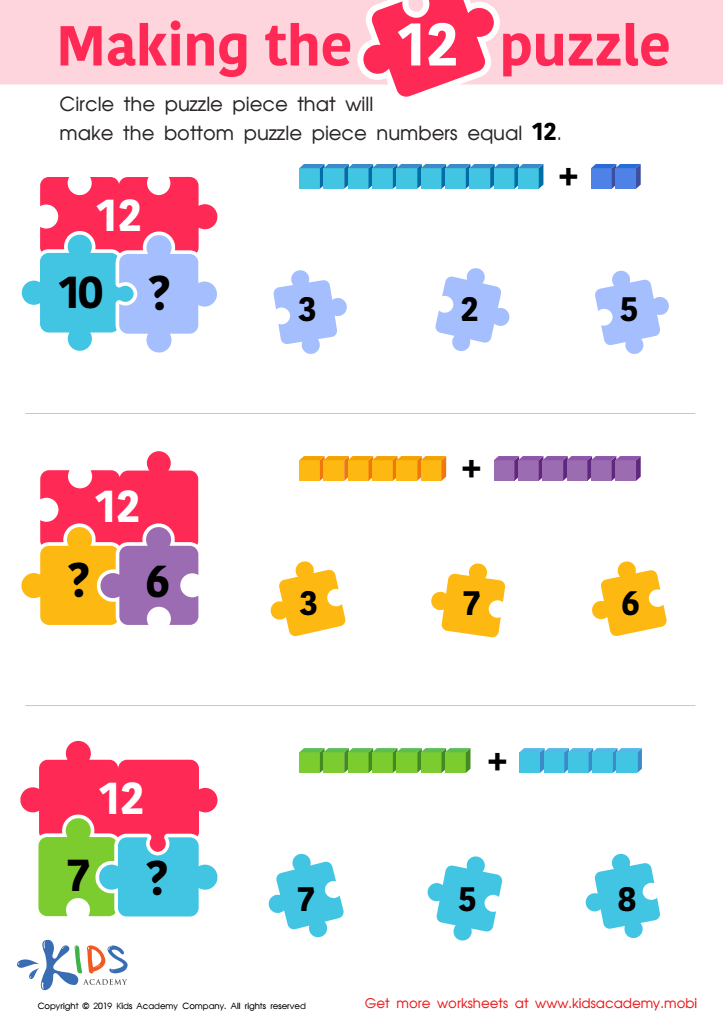

Making the 12 Puzzle Worksheet
Logical thinking and addition for children aged 5-9 form a fundamental foundation for future learning and problem-solving. Developing these skills early on opens doors to a wide range of cognitive abilities, aiding children in understanding and navigating the world around them.
Logical thinking enhances children's ability to recognize patterns, make connections, and reason systematically. It's crucial for grasping more complex concepts in subjects like mathematics, science, and even in social studies. For instance, when children learn addition, they don't just memorize numbers; they comprehend how to combine elements, understand quantities, and solve simple problems, fostering critical analytical skills.
Addition, a basic arithmetic skill, directly provides practical life applications. Children use it to understand money, time, and everyday game scores. Mastery of addition influences a child's confidence and enthusiasm for learning other mathematical operations, laying down a strong numerical foundation which is essential for advanced education.
Teachers and parents play pivotal roles in nurturing these abilities through fun, engaging activities such as puzzles, games, and interactive learning. This supportive environment helps kids to swiftly and effectively develop logical thinking and arithmetic skills. Consequently, children grow into creative thinkers and proficient problem-solvers, equipped for future academic challenges and everyday tasks. Investing time and resources in these early learning phases produces lifelong benefits.

 Assign to My Students
Assign to My Students
